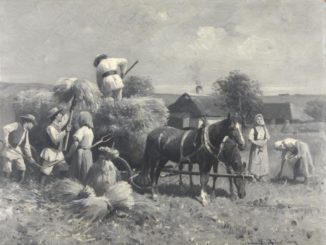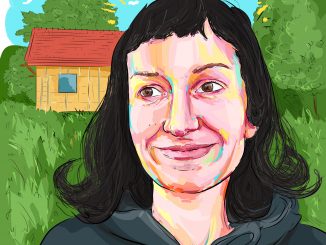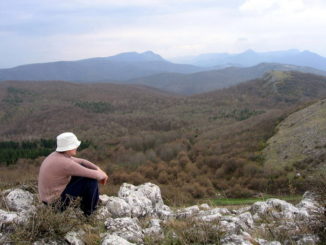ARC web correspondent for Romania, interviews the coordinator of the Romanian Platform for Fair and Sustainable Agriculture (PAES), Tiberiu Cazacioc
 Codrin Paveliuc-Olariu: Can you briefly outline the work of PAES with regard to the reform of the CAP?
Codrin Paveliuc-Olariu: Can you briefly outline the work of PAES with regard to the reform of the CAP?
Tiberiu Cazacioc: PAES means Platform for Fair and Sustainable Agriculture. It is an informal reunion of a handful of non-governmental organisations who, in the last decade, have worked at the grassroots level for sustainable agricultural in Romania. Their expertise is in rural and community development, tourism development, biodiversity, eco-tourism and bird protection.
Some of them formed RuralNet, a rural development ring of organizations. In second part of 2010, when ARC 2020 was up and running and the debate on the reform of CAP was the hot issue in Romania, Association Grupul de Initiativa Radu Anton Roman and WWF-DCP, called a meeting to gather grassroot forces.
These organisations are CAR-Centre for Rural Assistance, CIVITAS-Foundation for Civil Society, ADEPT-Foundation for Tourism Development, SOR/Birdlife International, the local chapter of ARC 2020, supported by the AER-Association for Ecological Tourism, the group joined later by the PACT Foundation.
The aim of the PAES is to contribute to the shaping of national policy on agriculture and rural development, through expert positions papers, when possible, submitted to national authorities and eventually to European Commission and the European Parliament.
CPO: What are the key messages/concerns of PAES in terms of the CAP reform process?
TC: CAP reform should support small farmers, small producers, and their traditional agricultural practices, which are performed in the frame of the sustainable agriculture. More support is needed for good agricultural practices which provide green benefits and public goods and to society. The developed world is trying to revive local food, support fresh food and create viable short food chains, whereas in Eastern Europe we have the chance to protect the farmland’s rural legacy. Industrial agriculture and food industry does not give all the needed answers and positive effects to society and environment. The food prices crisis is a context crisis, it is a problem of poverty and lack of money, not a food shortage. People in developing countries should be helped to develop local sustainable agriculture practices, not to become dependant clients of imported agricultural solutions.
CPO: What was the reaction of PAES to the CAP reform proposals released on 12th October?
TC: We stressed the importance of a strong and meaningful ‘greening’ of both CAP pillars for Europe’s environment and for the future of European farming as a whole: among othersm we call for a mandatory greening package of measures applied at farm level, effective crop rotation, Environmental Focus Areas to cover 10% of the farm, no coupled support given to energy crops and arable crops, extra support given to organic farming, no reverse modulation from Pillar 2 to Pillar 1.
We will also look to work harder on the communication side of things. Although public opinion in Romania is more and more sensitive to the relation between food and health, we need to change the paradigm. In order to value small farmers, sustainable agriculture and good practices which support biodiversity, the Association Grupul de Initiativa Radu Anton Roman is advocating for the organisation of a competition: Annual Trophy for Sustainable Agriculture.
CPO: Do you know of any current or upcoming campaigns that are being run related to the CAP reform? If so, what are they?
TC: Some PAES organisations are also members of the Management Committee of the National Rural Development Programme (NRDP), and when meetings take place, they submit their proposals for the updating of the programme. Convivia of Slow Food in Romania, an important network of groups working in the eco-gastronomy field, plan to organise events dedicated to Terra Madre Day, when a national position paper will be issued, supporting the Slow Food position after the 12th October release of the reform package.
On the 28- 29th October this year, in the framework of a CAP info grant, the ADEPT Foundation organised a conference and gathered stakeholders from Romania and the Netherlands to present significant experiences in local production, to preserve biodiversity and ensure sustainable living means to rural people.
On 23-24th of September this year CIVITAS Foundation, organised a conference on local products. They presented their local products scheme – Fruit of traditions – based on community involvement, pedology studies, a processing factory unit, and a wonderful holistic approach of the local orchards, people, and food processing, from Szekler Land.




